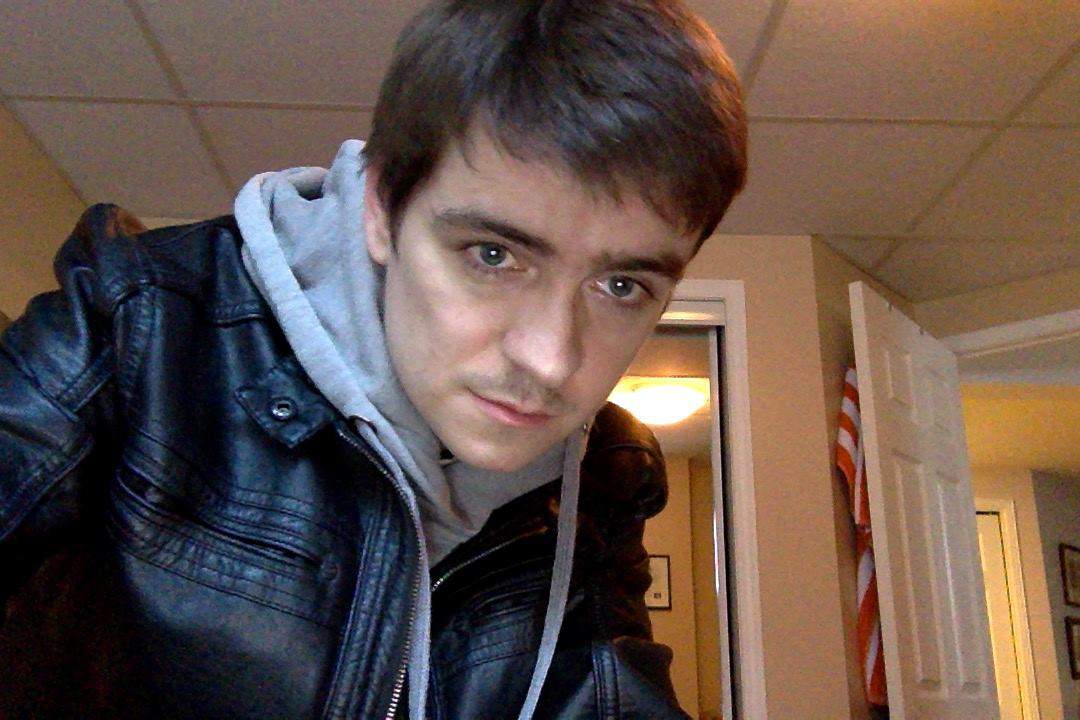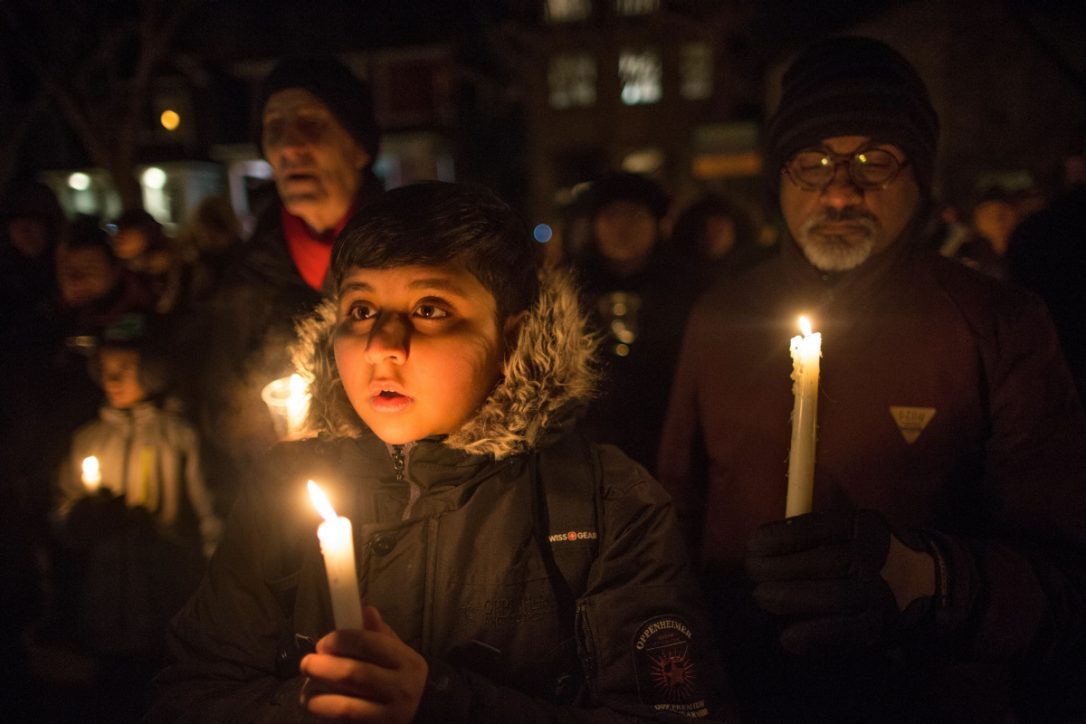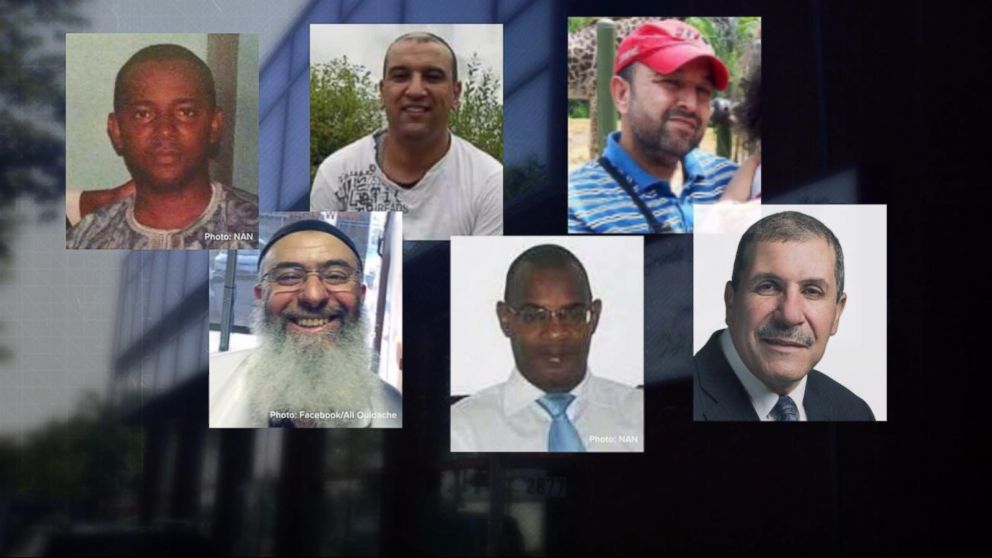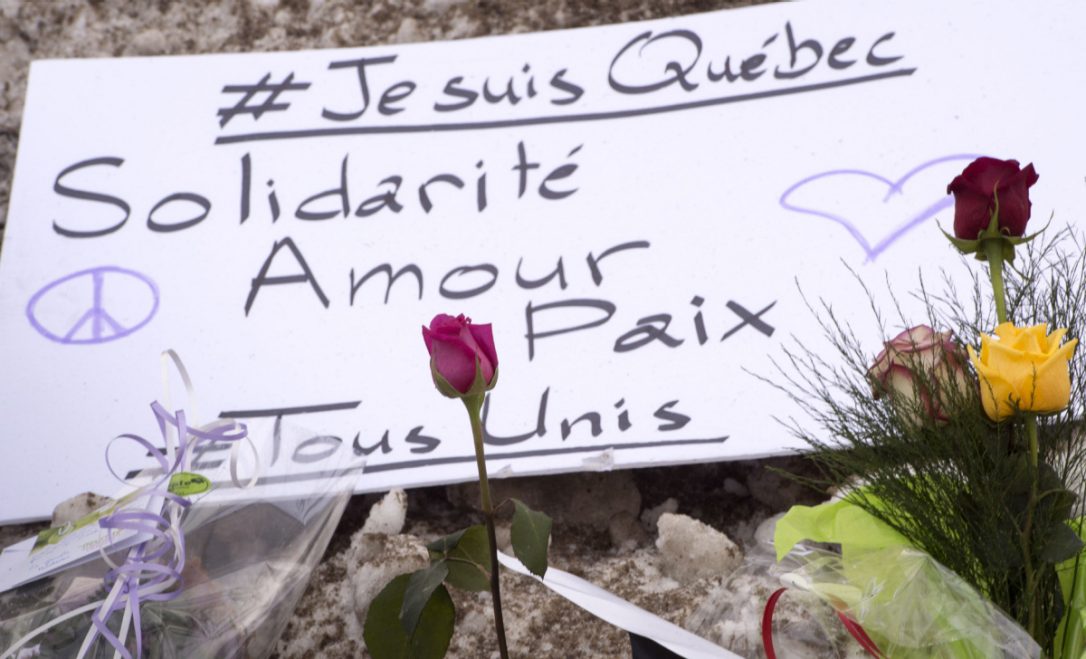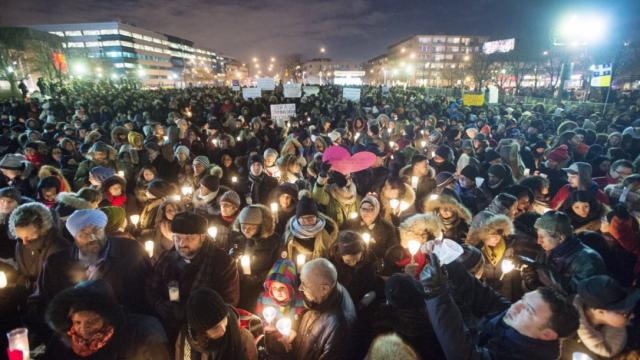
Far-right anti-immigrant hatred stirred up by U.S. President Donald Trump and France's National Front leader Marine Le Pen appear to have fuelled the mass shooting that left six dead and 19 wounded at the Quebec Islamic Cultural Center mosque in Quebec City, Canada, on Sunday night.
The man apprehended for the killings, 27-year-old Alexandre Bissonette, was a student at Laval University who had grown up in a quiet suburb of the city and was a recent convert to rightwing nationalist ideology. According to the Globe and Mail, Bissonette showed little interest in politics until Le Pen's visit to Quebec City in March, where her fiery anti-immigrant talk inspired him “to vocal extreme online activism.” He later became known online for defending Donald Trump’s nativist, anti-immigrant rhetoric.
Bissonette is alleged to have entered the mosque on Sunday evening and opened fire on those engaged in prayer. Six were killed and 19 wounded, five of whom remained in hospital as of Tuesday evening. Bissonette was taken at the scene and charged with six counts of first degree murder and five counts of attempted murder.
One of the people killed, Professor Khaled Belkacemi, had worked at the same university Bissonette attended. He had one child. Two other victims, Azzedine Soufiane and Abdelkrim Hassan, were both fathers of three.
Responding to the attack, Canadian Prime Minister Justin Trudeau said in a statement, “It is heart-wrenching to see such senseless violence. Diversity is our strength, and religious tolerance is a value that we, as Canadians, hold dear.”
A Quebec City group that dedicates itself to welcoming refugees to the city wrote on its Facebook page after the attack (in French, with translation provided):
“It is with pain and anger that we learned the identity of the terrorist Alexandre Bissonette. Unfortunately, he was known to several activists in Quebec City for his [white nationalist] identity politics, pro-Le Pen and anti-feminist positions at Laval University and on social networks.”
This wasn’t the first incident at the Quebec Islamic Cultural Center, although it was the first violently tragic one. In June 2016, a pig’s head was left on the steps of the center, and later “a pamphlet was circulated in the neighborhood that alleged the mosque was linked to terrorism.” Police do not currently believe these earlier incidents were connected to Bissonette's actions.
Hate crimes spiked in nearby Montreal, Quebec’s largest city, directly following the shootings, with 14 incidents reported by the city’s police chief, Philippe Pichet, in a statement to the press on Tuesday morning.
Rather than acknowledging the tragedy and offering condolences to the victims’ families, President Trump through his surrogate press secretary Sean Spicer used the actions of a Canadian-born rightwing nationalist to justify his executive order impeding travel to the U.S. by immigrants from seven majority Muslim nations. “It’s a terrible reminder of why we must remain vigilant and why the president is taking steps to be proactive rather than reactive when it comes to our nation’s safety and security,” Spicer said at a Monday briefing.
Meanwhile in Texas
The day before Bissonette’s attack, another mosque, the Islamic Center of Victoria, Texas, burned to the ground. Authorities have yet to determine whether the fire was caused by arson or accident. A wide swath of Americans and others showed immediate support for the area's Muslim community, donating nearly $1 million over two days to rebuild the center.
“The outpouring of love, kind words, hugs, helping hands and the financial contributions are examples of the true American Spirit and Humanity at its best with donations coming in from all over the world,” a mosque representative wrote on the group's GoFundMe page.
All of this comes amid rising tensions and fears that spilled out into nationwide protests at airports and public spaces over the weekend in response to Trump's executive order targeting foreign travellers, immigrants and refugee claimants from Somalia, Iran, Iraq, Sudan, Yemen, Libya and Syria. Widely seen as an unconstitutional ban on Muslims, the edict has been challenged by numerous U.S. states and provoked more than 1,000 State Department employees to sign a letter expressing outrage at the administration's decision.
Shortly after Trump signed the order, Canadian Prime Minister Trudeau took to Twitter with promises that Canada would welcome refugees barred from entering the U.S. At the same time, airlines operating out of Canadian airports began turning back some travellers with ties to countries on the list, preventing them from boarding or connecting to U.S. bound flights.
3 WAYS TO SHOW YOUR SUPPORT
- Log in to post comments

